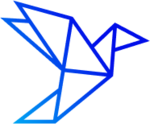Samsung has unveiled a groundbreaking advancement in artificial intelligence with the release of the Tiny Recursion Model (TRM), a neural network that challenges the long-standing belief that bigger is better in AI development.
Developed by Senior AI Researcher Alexia Jolicoeur-Martineau at Samsung's Advanced Institute of Technology (SAIT) in Montreal, Canada, this model boasts just 7 million parameters, making it a fraction of the size of industry giants like OpenAI's o3-mini and Google's Gemini 2.5 Pro.
The Power of Small: TRM's Unmatched Efficiency
Despite its compact size, TRM has demonstrated the ability to compete with or even surpass models 10,000 times larger on some of the toughest reasoning benchmarks in AI research.
This achievement, reported by VentureBeat, signals a potential shift in the industry, proving that efficiency can outweigh sheer scale in specific problem-solving scenarios.
Historical Context: The Race for AI Supremacy
Historically, the AI field has been dominated by a 'scale is all you need' philosophy, with companies pouring billions into massive models requiring immense computational resources and power.
Samsung's innovation with TRM harks back to earlier efforts to prioritize sustainability and accessibility, reminiscent of smaller, open-source initiatives that emerged as alternatives to proprietary giants over the past decade.
Impact on the Industry: Redefining AI Development
The release of TRM as an open-source model could democratize AI development, enabling smaller organizations and independent researchers to create high-performing solutions without the need for expensive GPU clusters.
This breakthrough also raises questions about the environmental impact of AI, as smaller models like TRM consume significantly less energy, addressing growing concerns over the carbon footprint of large-scale AI training.
Looking Ahead: The Future of Tiny AI
Looking to the future, TRM's success could inspire a wave of research into compact, specialized models, potentially transforming how AI is integrated into edge devices like smartphones and IoT systems.
However, while supporters on platforms like X hail this as a game-changer, some experts caution that TRM's methods may not generalize across all AI tasks, highlighting the need for further testing.
Nevertheless, Samsung's contribution with TRM marks a pivotal moment, pushing the boundaries of what is possible with minimalist architectures and setting a new benchmark for reasoning efficiency.


 Andrew Lee
Andrew Lee




